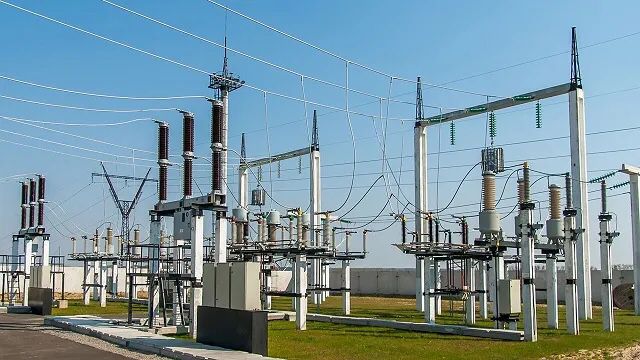Civil Society Groups for Good Governance, CSGGG, has collaborated with the Federal Ministry of Power and other stakeholders on possible solutions to improve the state of power supply in Nigeria.
The Honourable Minister of Power, Engr Abubakar Aliyu in his speech at the 3rd edition of the Civil Society Roundtable Discussion themed: “Boosting Nigeria’s Power Sector Performance for Overall Socio-Economic Development of the Nation”, organised by the CSGGG in Abuja on Thursday, said creating an enabling environment is critical in achieving the projected power generation.
Aliyu who was represented by the Director, Reform Coordination and Service Improvement department of the ministry, said the legal mandate of the ministry in the post-privatization era which was midwifed by the Electric Power Sector Reform (EPSR) Act of 2005, is to provide overall leadership and policy direction in matters concerning the supply and use of electricity in Nigeria.
He further outlined some of the efforts and achievements of the ministry so far in achieving its vision 2030.
He said, “Given Nigeria’s enormous energy resources, its huge human capital and population demography, it is obvious that creating an enabling environment is a critical component in the realization of the Electricity Vision (EV) 30:30:30 which seeks to make available 30GW of electricity (30 Gigawatts), by year 2030 with 30% of the energy mix coming from renewable energy sources.”
“The Ministry, through collaboration under Nigerian Energy Support Program (NESP) has mapped over 3,937 settlements, 3,244,605 buildings and 60,183km of 11 and 33kV medium voltage lines of the grid in 23 states.
“Minimum Energy Performance (MEP), Energy Efficiency (EE) Household label and Standards have been developed and approved for lighting, refrigerators and Air-conditioners by Standard Organisation of Nigeria Council (SON);
“Nigerian Standards for Solar Photo Voltaic (PV) panels, batteries, inverters and charge controllers are being developed and approved by Standard Organisation of Nigeria (SON). Six Solar PV Mini-grids developed under (NESP) I provided sustainable electricity to more than 15,000 people as of 2020, and Nigerian Energy support programme. 100,000 additional people would be reached under (NESP) II through the Mini-grid Acceleration Scheme (MAS), ” the Honourable Minister said.
He therefore assured that Federal Government will continue to focus on completing its power project such as the “700MW Zungeru Hydropower project, 40MW Kashimbilla Hydropower project and several other small and medium Projects Hydropower power under concession such as the progress made on the 3,050MW Mambilla Hydropower project along with other renewable energy generation projects, ” as well as focus more on creating the right enabling environment for private investment to achieve sustainable power supply and energy sources with less risk of greenhouse gas emission and credential, such as renewable energy and efficient gas power plants.
Earlier in his welcome address, the president of CSGGG, a coalition of several CSOs, Comrade Dominic Ogakwu, said the roundtable was an agenda-setting event considering several watershed attempts by CSOs at bridging the gap between regulators, the Nigerian electricity consumers, electricity transmission, distribution and generation companies and proffer practical solutions to the country’s epileptic power supply.
Comrade Ogakwu said the theme of the roundtable discussion was carefully coined to provoke stakeholders to positive actions aimed at bringing a lasting solution to the challenges in the power sector, “bearing in mind the associated benefits of stable electricity supply. This is so because the giant of Africa should not be focusing on boosting power supply in the twenty-first century, ” he said.
He noted that despite an investment of billions of dollars by the previous government, Nigeria is unable to distribute the 5,000 MW it generates which he said is a far cry from what would drive industrialization.
He added that the round table seeks to provoke citizen action against epileptic power supply and issues surrounding consumers’ rights and obligations, explaining that the platform will serve as a wake-up call for leadership commitment and public service accountability.
He said, “Even with an investment of over 16 billion dollars by the previous administration, today, Nigeria still generates a paltry 5,000 megawatts as against our current capacity of over 11,000 megawatts of electricity for millions of Nigerian consumers. Even more worrisome is our inability to equitably distribute our generated capacity while faced with a stark reality that productivity and industrialization of any nation is hinged on Power Supply.
“Going by the Power Sector reforms, unbundling PHCN has not yielded many results as the administrative red tapism in public procurement, depleting technical manpower due to poor succession plan, obsolete and decayed infrastructure, lack of consumers rights protection and education, perennial corruption, vandalization of critical power assets, electricity theft, non-metering and exorbitant cost have become the bane which affects electricity Supply. These factors have made the science of stable electricity supply appear almost impossible in every region of Nigeria and like every other challenge facing our country, Nigerians are the ones who bear the brunt. Why is it so difficult to fix these challenges, one wonders!
“Moving forward, there is a need for a consensus on what approach is both proactive and suitable, what is the sector’s critical needs that can drive the implementation of the various reforms aimed at arresting the challenges in the short term and what can sustain and stabilize power supply in the long run. The responsibility to get things right should not just rest on the regulator or electricity distribution companies alone, but Civil Society and electricity consumers must join hands to demand and direct the trajectory for improved service delivery as constitutionally required.
“Part of what has necessitated our resolve to collaborate with the Ministry of Power is the perceived motive of the Honourable Minister and his team to fast-track implementation of reforms and fall out from deliberations from forums like ours ever since his appointment.”



